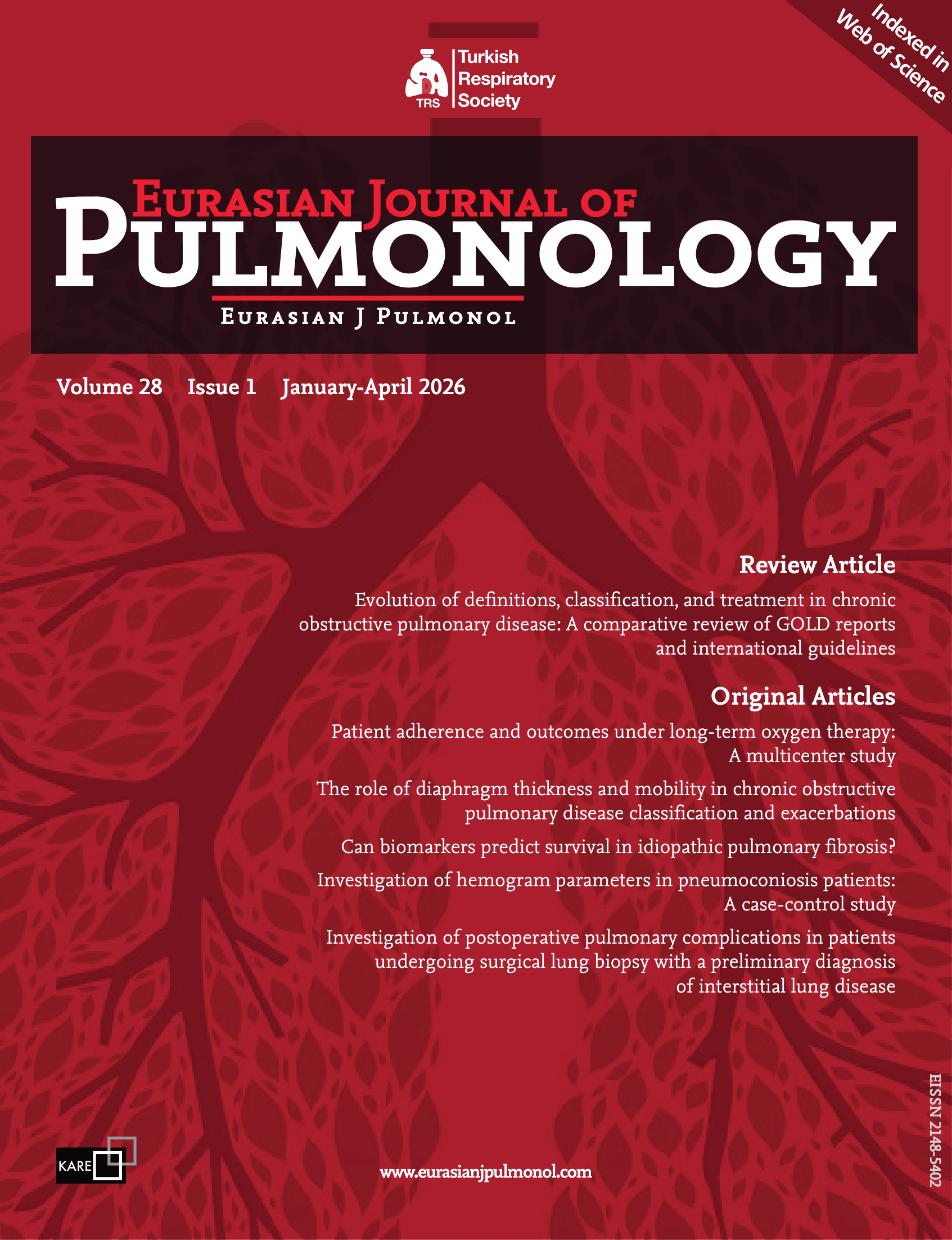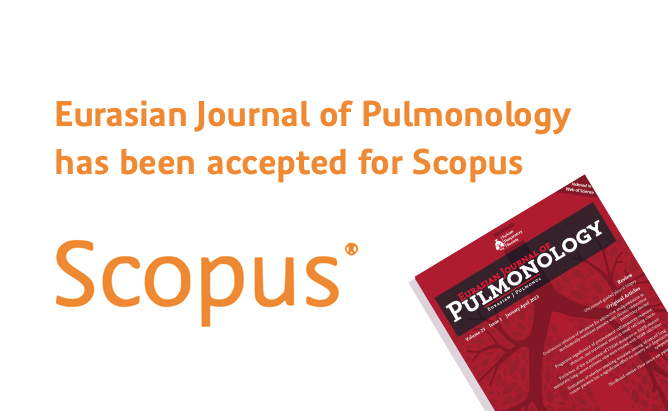2Department of Pulmonology, Faculty of Medicine, Selçuk University, Konya, Turkey
3Department of Psychology, TOBB University of Economics and Technology, Ankara, Turkey
Abstract
OBJECTIVE: We researched the relationship between the cognitive scores and the error codes which determine pulmonary function test (PFT) compliance accompanied by the phenotypic findings of chronic obstructive pulmonary disease (COPD) patients.
MATERIALS AND METHODS: Patients in a stable condition with COPD, who were diagnosed with the criteria recommended in the international guidelines, were included in the study. PFTs were requested from all the patients during the regular outpatient admission. The following tests were applied to all the patients in a 30-min test session; COPD assessment test, modified British Medical Research Council and neurophysiological tests (Mini-Mental Test, Trail Making Test Part A and B, Clock Drawing Test, Straight and Backward Digit Span, Brown Peterson Task and Verbal Fluency Test). We analyzed the statistical relationship between data collected after cognitive tests and PFT quality data.
RESULTS: The study was concluded with a total of 70 patients. When the PFT evaluations of the patients were examined, the percentage of patients who correctly fulfilled the repeatability criteria was found as 28%, who met the acceptability criteria as 57%, and who correctly fulfilled both criteria as 14%. The relationship between the results of patients, who fulfilled both repeatability and acceptability criteria correctly and incorrectly at the same time, with the backward digit span test results was found to be significant (P < 0.05). It was found that the Mini-Mental Test was significantly better in those who performed all of the repeatability and acceptability criteria without errors than the other groups. When the PFT criteria of the patients were evaluated according to the cognitive test results, it was determined that the relationship between the Mini-Mental Test and the results of performing the repeatability and acceptability criteria together was found to be statistically significant (P < 0.05).
DISCUSSION AND
CONCLUSION: Error codes that identify the compliance in PFTs could be used as predictors of cognitive impairment in COPD.




 Gulfem Yildirim1
Gulfem Yildirim1 




